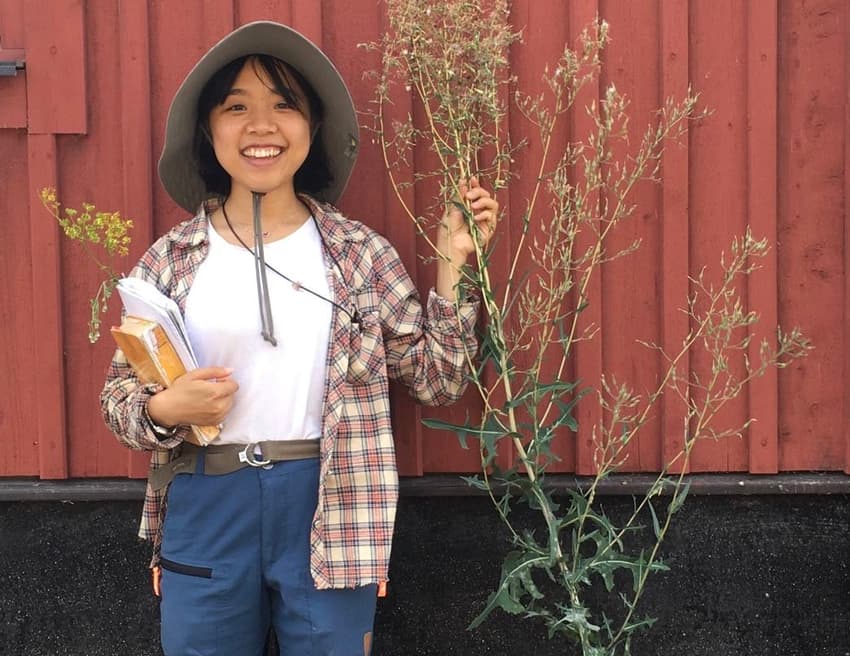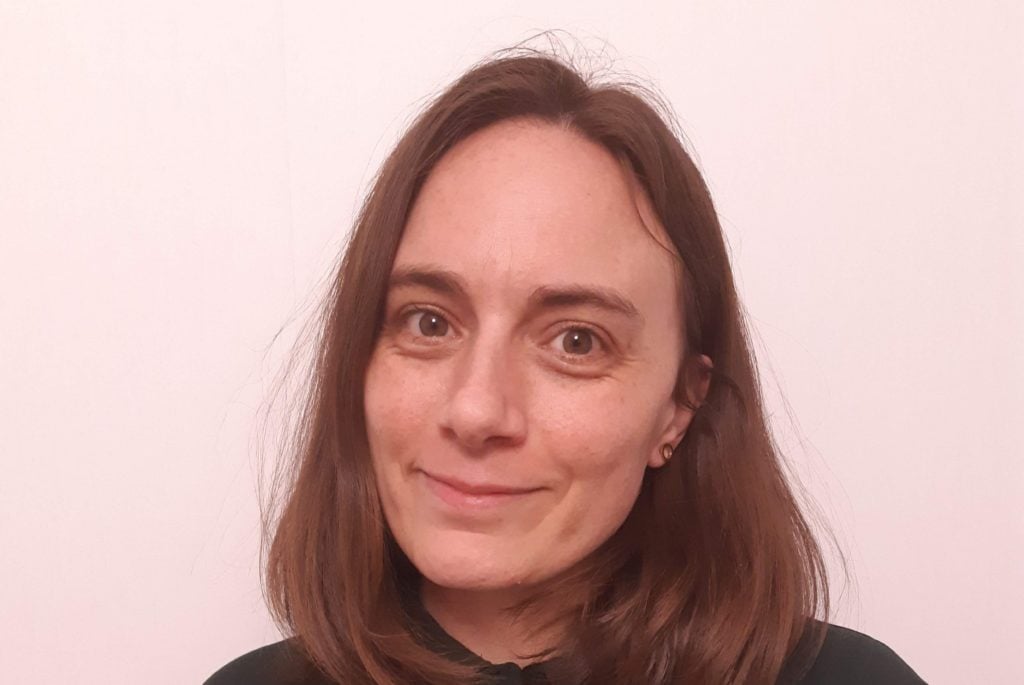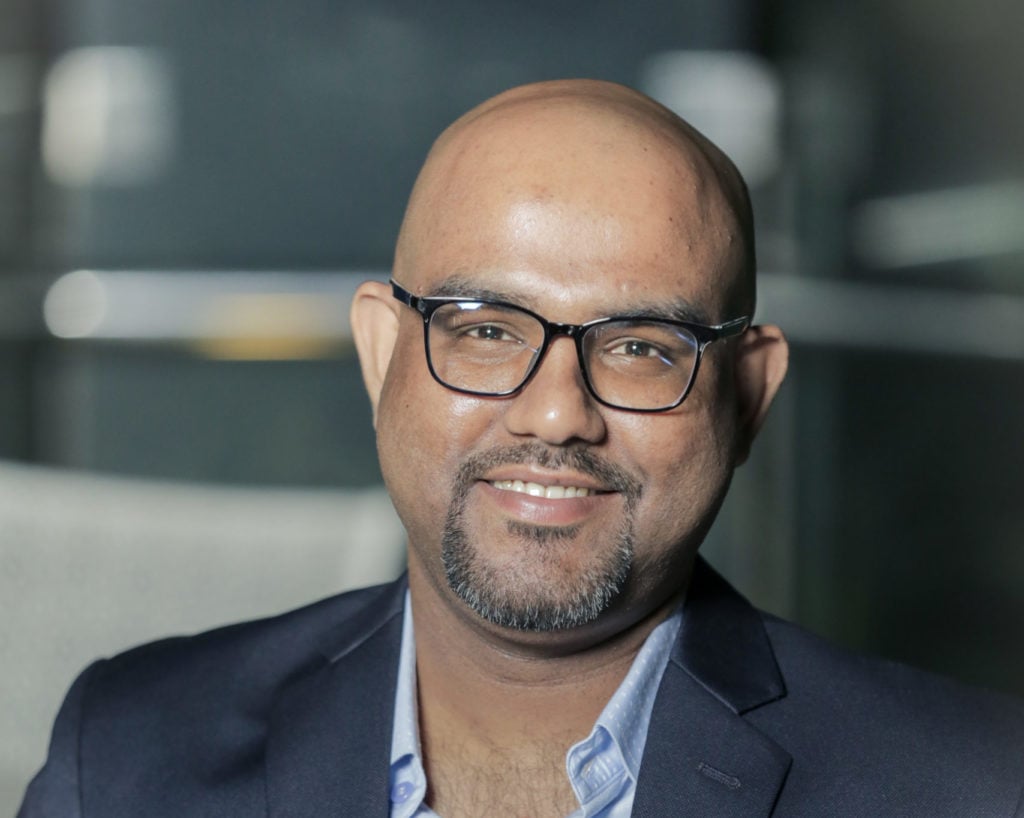One year on: How Sweden's new permit rule for PhDs has upended lives

In July last year, Sweden's new migration law tightened residency rules for PhD students, sending the future plans of thousands into disarray. The SACO union spoke to three of them about how their lives had been changed.
Chen, 31, from China.
PhD on non-pesticide methods to reduce insect damage in newly-planted forests.
Chen, who came to Sweden from China in 2017 to study a the Swedish Agricultural University, says that she has felt trapped in Sweden since defending her thesis in November, as the Migration Agency does not normally allow those applying for a residency permit to travel
"I feel like I'm under house arrest," she complains. "I haven't been able to take a vacation outside Sweden since my permanent residency application is pending, and I can’t go back to China to visit my family for the same reason -- two years since the first Covid outbreak at the beginning of 2020."
Now the exemption from residency permit requirements for PhD students has been removed, PhD students generally need to get a job as soon as they graduate to show that they can support themselves, but Chen says she was so deeply engaged in her studies that it was near-impossible to send off job or research applications.
"There are many days I woke up at 8am and left my office at midnight," she remembers. "I ate for only one meal during the day in order to finish my thesis in time. I could barely spare any time to look for jobs or send job applications even though I knew I had to get a job offer for at least two years to get a positive decision on my permanent residency application. "
"After my defence, there was no time to celebrate my achievement but I instead started to search for jobs immediately."
Before the change in the rules, Chen had planned to look for post doctoral studies in another European country, but the new rules makes that difficult.
"My plan was to do a one or two year postdoc in another country to strengthen my competence and then come back to Sweden," she said. It is rather common to do a postdoc in a new country and then come back to the PhD country for a more stable academic position," she said. "By doing so we could broaden our vision, establish collaboration and bring back new insights.
"When we got permanent residency, returning to Sweden was easier, without having to go through all the energy-consuming stuff, like getting a job offer and applying for a work permit, getting a personal number, Swedish ID, bank account, Bank-ID and insurance."
She believes that the Swedish government should acknowledge that the impact of the new alien act on PhD students is a mistake and take steps to reverse the changes.
"Do not be afraid to admit that you made wrong decision, be open-minded and listen to different voices," she tells the Swedish authorities. "There are ways to fix the mess and regain people's trust."
Now she's considering whether to carry on seeking work and waiting for the Migration Agency to take its decision, or whether to take her expertise to another country, probably The Netherlands or Germany.
"The way to regain my freedom is either to get a job that fulfils the new requirement or to leave Sweden to build my life and career somewhere else."
READ ALSO:
- How Sweden’s Migration Act unexpectedly abandoned doctoral students
- Swedish government defends new rules for foreign PhD students
- What does Sweden’s new migration law mean for residence permit-holders?

Melissa, from Australia. Photo: private
Melissa, 36, Australia
PhD on riparian ecosystem science
"It's brought a big, dark shadow of insecurity into mine and my partners' long term plans," says Melissa, who decided to do her PhD in Sweden partly because her partner is Swedish, and partly because she knew she would be "a better researcher and scientist" if she spent time researching in another country.
When she arrived, she wasn't necessarily planning to continue her research in Sweden, but as she began to realise she perhaps wanted to, the change in the law came in, making it more difficult.
"Turns out, I really like it here and I like the research environment! I do want to stay in Sweden to pursue a career here. I knew that an academic career was already very unpredictable but I had hoped that after finishing my PhD I could continue branching out from the research I've been doing in boreal forests in the form of postdoctoral positions with some of the Swedish researchers I really admire."
That is now all looking more and more unlikely.
"It's almost like there's this atmosphere of uncertainty that's with me when I think about life after my PhD," she says. "It's already stressful to think about what I will do when I finish my doctoral studies, but adding in the stress of possibly not being able to stay in Sweden is massively draining, especially when the Aliens Act seems to ignore, or not care to consider, the realities of an academic career."
She believes that the Swedish government should at least adapt the Aliens Act to reflect what she calls "the realities of academic careers".
"It is virtually unheard of for a young researcher to gain a position that fulfils the support requirements for 18 months and by not adjusting the Aliens Act to account for this you are discouraging really talented and passionate young researchers from coming."
Although she wasn't set on staying in Sweden for the long term when she started her PhD, she's finding the new barrier to residency is putting her off, pushing her to consider positions in Australia or the US.
"I'm more hesitant about pursuing an academic career in Sweden because the added feeling of 'temporary-ness' in everything I do," she says. "It even just manifests itself in little things like abandoning our plans to get a dog, buy a house, or have a more long term career goal in Sweden because permanency isn't so much of an option anymore."

Tuser Biswas, from Bangladesh, is researching textiles at Borås Högskola. Photo: private
Tuser Biswas, 34, Bangladesh
PhD on sustainably printing biological materials onto textiles which can fight bacteria and viruses
Tuser Biswas has also had his plans to work as a postdoc outside Sweden thrown into chaos by the new law, which came out four months after he'd applied for permanent residency.
"After I finish my PhD in Sweden, I would like to go work somewhere else as a postdoc. When I started my PhD, I knew that if I want to go somewhere else, I could always come back to Sweden (and I probably would) but know I am not sure what I would do," he says.
Also, like Chen, he has been stuck in Sweden as a result of the law.
"I've had to cancel attending conferences and still can't plan work related trips outside Sweden. My family is very stressed for not being able to travel to home country for a long time now."
He says that the change in labour laws has changed his views on Sweden.
"The total political environment is getting unfriendly for international mobility. I came to live in an open-minded society, but it seems like a mirage now."
He believes that the government should better tailor its migration laws to fit researchers.
"Don't make a 'one size fits all' type law. The working conditions for PhD researchers and other employees are not the same. How can you judge them all under the same law?".
Comments (1)
See Also
Chen, 31, from China.
PhD on non-pesticide methods to reduce insect damage in newly-planted forests.
Chen, who came to Sweden from China in 2017 to study a the Swedish Agricultural University, says that she has felt trapped in Sweden since defending her thesis in November, as the Migration Agency does not normally allow those applying for a residency permit to travel
"I feel like I'm under house arrest," she complains. "I haven't been able to take a vacation outside Sweden since my permanent residency application is pending, and I can’t go back to China to visit my family for the same reason -- two years since the first Covid outbreak at the beginning of 2020."
Now the exemption from residency permit requirements for PhD students has been removed, PhD students generally need to get a job as soon as they graduate to show that they can support themselves, but Chen says she was so deeply engaged in her studies that it was near-impossible to send off job or research applications.
"There are many days I woke up at 8am and left my office at midnight," she remembers. "I ate for only one meal during the day in order to finish my thesis in time. I could barely spare any time to look for jobs or send job applications even though I knew I had to get a job offer for at least two years to get a positive decision on my permanent residency application. "
"After my defence, there was no time to celebrate my achievement but I instead started to search for jobs immediately."
Before the change in the rules, Chen had planned to look for post doctoral studies in another European country, but the new rules makes that difficult.
"My plan was to do a one or two year postdoc in another country to strengthen my competence and then come back to Sweden," she said. It is rather common to do a postdoc in a new country and then come back to the PhD country for a more stable academic position," she said. "By doing so we could broaden our vision, establish collaboration and bring back new insights.
"When we got permanent residency, returning to Sweden was easier, without having to go through all the energy-consuming stuff, like getting a job offer and applying for a work permit, getting a personal number, Swedish ID, bank account, Bank-ID and insurance."
She believes that the Swedish government should acknowledge that the impact of the new alien act on PhD students is a mistake and take steps to reverse the changes.
"Do not be afraid to admit that you made wrong decision, be open-minded and listen to different voices," she tells the Swedish authorities. "There are ways to fix the mess and regain people's trust."
Now she's considering whether to carry on seeking work and waiting for the Migration Agency to take its decision, or whether to take her expertise to another country, probably The Netherlands or Germany.
"The way to regain my freedom is either to get a job that fulfils the new requirement or to leave Sweden to build my life and career somewhere else."
READ ALSO:
- How Sweden’s Migration Act unexpectedly abandoned doctoral students
- Swedish government defends new rules for foreign PhD students
- What does Sweden’s new migration law mean for residence permit-holders?

Melissa, 36, Australia
PhD on riparian ecosystem science
"It's brought a big, dark shadow of insecurity into mine and my partners' long term plans," says Melissa, who decided to do her PhD in Sweden partly because her partner is Swedish, and partly because she knew she would be "a better researcher and scientist" if she spent time researching in another country.
When she arrived, she wasn't necessarily planning to continue her research in Sweden, but as she began to realise she perhaps wanted to, the change in the law came in, making it more difficult.
"Turns out, I really like it here and I like the research environment! I do want to stay in Sweden to pursue a career here. I knew that an academic career was already very unpredictable but I had hoped that after finishing my PhD I could continue branching out from the research I've been doing in boreal forests in the form of postdoctoral positions with some of the Swedish researchers I really admire."
That is now all looking more and more unlikely.
"It's almost like there's this atmosphere of uncertainty that's with me when I think about life after my PhD," she says. "It's already stressful to think about what I will do when I finish my doctoral studies, but adding in the stress of possibly not being able to stay in Sweden is massively draining, especially when the Aliens Act seems to ignore, or not care to consider, the realities of an academic career."
She believes that the Swedish government should at least adapt the Aliens Act to reflect what she calls "the realities of academic careers".
"It is virtually unheard of for a young researcher to gain a position that fulfils the support requirements for 18 months and by not adjusting the Aliens Act to account for this you are discouraging really talented and passionate young researchers from coming."
Although she wasn't set on staying in Sweden for the long term when she started her PhD, she's finding the new barrier to residency is putting her off, pushing her to consider positions in Australia or the US.
"I'm more hesitant about pursuing an academic career in Sweden because the added feeling of 'temporary-ness' in everything I do," she says. "It even just manifests itself in little things like abandoning our plans to get a dog, buy a house, or have a more long term career goal in Sweden because permanency isn't so much of an option anymore."

Tuser Biswas, 34, Bangladesh
PhD on sustainably printing biological materials onto textiles which can fight bacteria and viruses
Tuser Biswas has also had his plans to work as a postdoc outside Sweden thrown into chaos by the new law, which came out four months after he'd applied for permanent residency.
"After I finish my PhD in Sweden, I would like to go work somewhere else as a postdoc. When I started my PhD, I knew that if I want to go somewhere else, I could always come back to Sweden (and I probably would) but know I am not sure what I would do," he says.
Also, like Chen, he has been stuck in Sweden as a result of the law.
"I've had to cancel attending conferences and still can't plan work related trips outside Sweden. My family is very stressed for not being able to travel to home country for a long time now."
He says that the change in labour laws has changed his views on Sweden.
"The total political environment is getting unfriendly for international mobility. I came to live in an open-minded society, but it seems like a mirage now."
He believes that the government should better tailor its migration laws to fit researchers.
"Don't make a 'one size fits all' type law. The working conditions for PhD researchers and other employees are not the same. How can you judge them all under the same law?".
Join the conversation in our comments section below. Share your own views and experience and if you have a question or suggestion for our journalists then email us at [email protected].
Please keep comments civil, constructive and on topic – and make sure to read our terms of use before getting involved.
Please log in here to leave a comment.